PORTO CANCER MEETING
PREVIOUS EDITIONS
28th PORTO CANCER MEETING 2022
PORTO CANCER MEETING 2022 | MENU
Speakers
28th PORTO CANCER MEETING 2022
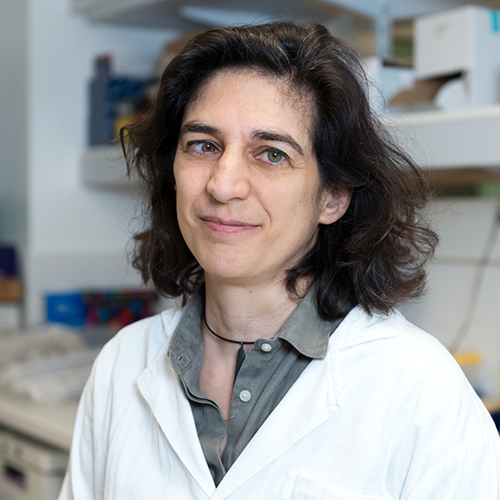
Clotilde Théry
Institut Curie, INSERM U932, PSL research University
Dr. Clotilde Théry is an INSERM director of research (DR1) working at Institut Curie, where she heads the team “Extracellular Vesicles, Immune responses and Cancer”.
Before joining Institut Curie as a post-doctoral researcher in 1996 to work on the cell biology of antigen presentation, she had been studying development of the brain for her PhD in Paris, and a post-doc in Oxford University UK, then Columbia University, New York USA.
Since 1998, her scientific interests have focused on the study of exosomes (and more recently extracellular vesicles in general), secreted by immune and tumor cells, and their roles in communications between tumors and the immune system. Her goals are to understand the physiological functions of EV secretion during an in vivo immune response and during tumor growth, and her approach is to continuously go from basic cell biology questions on their modes of formation to application of this knowledge to in vivo situations.
C. Théry is regularly invited to write reviews on the subject of exosomes, EVs, their immune functions and their biogenesis. She has organized several symposia and sessions dedicated to exosomes in international meetings, and in particular a first “International Workshop on Exosomes” in Institut Curie, in Paris, in 2011, which led to the creation of the International Society for Extracellular Vesicles (ISEV), for which she served as Secretary General from 2012 to 2016, and more recently President (2020-2022). She has been Editor in Chief of the journal of the Society, J Extracell Vesicles, from its creation in 2012 until 2019. In addition to publishing numerous highly cited original articles and reviews, she has led the community-based efforts to standardization and reproducibility of EV research, which resulted in the MISEV2018 guideline article (Théry*, Witwer* et al, J Extracell Vesicles 2018). She has been listed “highly cited researcher” by Clarivate in 2019 and 2020.
https://science.institut-curie.org/team-thery
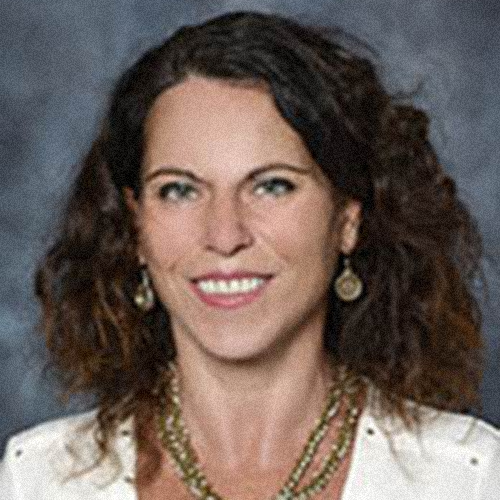
Dolores DiVizio
Professor of Surgery, Pathology & Laboratory Medicine, and Biochemical Science Cedars-Sinai Medical Center
Dolores Di Vizio is a molecular pathologist, and a molecular and cell biologist, with 20 years of experience in urological cancer. Currently she is a Professor at Cedars-Sinai Medical Center. She published over 110 peer-reviewed manuscripts, including in high impact journals (Cancer Cell, Cell, Cancer Research, Nat Med, Nat Cell Biol,) and made important contributions to cancer research in a number of areas. Her work has been cited over 16,000 times and her H-index is 56.
Her team has emerged as a leading group in studies of cancer extracellular vesicles (EV). She sits on several grant study sections including from the NIH and the DoD. She serves as senior board member of the International Society of Extracellular Vesicles (ISEV), and is an associate editor for the Journal of Extracellular Vesicles.
https://www.cedars-sinai.edu/research/labs/di-vizio.html
https://www.cedars-sinai.org/about.html?s_kwid=&&origin=sitelink&gclid=CjwKCAiA9tyQBhAIEiwA6tdCrCr-sj2BSKp4ICKuGyi_V-uhAHRbanI91C7eyicHQu3bNoGEJI4LeBoCCLwQAvD_BwE&gclsrc=aw.ds
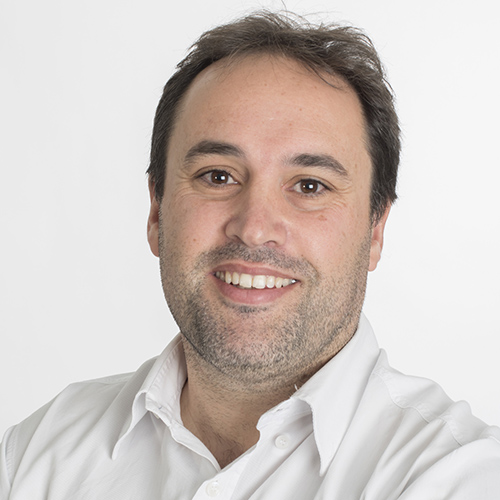
Hector Peinado
Spanish National Cancer Research Centre
I did my PhD in the laboratory of Dr. Amparo Cano in Madrid (Spain, Biomedical Research Institute “Alberto Sols”) where he specialized in analyzing Epithelial to Mesenchymal Transition Mechanisms. In my lab we described the molecular mechanisms of EMT regulated by Snail transcription factor and Lysyl Oxidase 2. We defined a role for beta-catenin in regulating cancer stem cell behavior in skin cancer. I joined Dr. Lyden’s laboratory at Weill Cornell Medical College as a postdoctoral associate in 2008 to study the crosstalk between tumor cells and bone marrow derived cells during metastatic progression. My work defined that tumor- secreted exosomes educate bone marrow progenitor cells toward a pro-metastatic phenotype.
In 2013, I was promoted to Assistant Professor in the Department of Pediatrics at Weill Cornell Medical College, New York. I joined the CNIO in 2015 as the group leader of the laboratory of Microenvironment and Metastasis. My current research goals are focused on understanding the role of tumor-secreted exosomes in the crosstalk with the tumor microenvironment during metastasis and their use in liquid biopsies.
https://www.cnio.es/investigacion-e-innovacion/programas-cientificos/programa-de-oncologia-molecular/grupo-de-microambiente-y-metastasis/
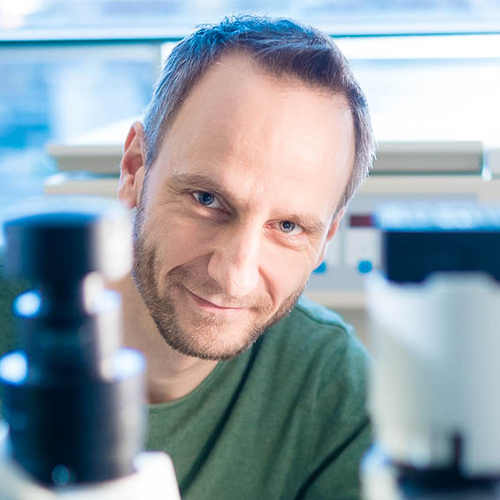
Jacco van Rheenen
Department of Molecular Pathology, Oncode Institute, Netherlands Cancer Institute, Amsterdam, 1066 CX, The Netherlands
Jacco van Rheenen was originally trained in a variety of imaging techniques during his PhD with Dr. Kees Jalink at the Netherlands Cancer Institute. He was among the first to optimize imaging and develop software to quantitatively measure FRET on confocal microscopes.
During his PhD in the lab of Dr. Jalink and as postdoc in the lab of Dr. Sonnenberg (Netherlands Cancer Institute) he used several microscopy techniques to study lipid signaling in tumor cells. In order to broader his scales, he obtained a KWF fellowship to do a postdoc in the United States in the lab of Dr. John Condeelis at the Albert Einstein College of Medicine. There he extended his imaging experience by imaging mammary tumors intravitally including two-photon microscopy and became an expert in the field of intravital FRET imaging.
In 2008 he was appointed as group leader at the Hubrecht Institute, where he utilizes his imaging techniques to visualize processes that are required for the metastasis of tumor cells in living animals. In July 2014 he was appointed professor in Intravital Microscopy at the University Medical Center Utrecht. In October 2017 he became senior group leader at the Netherlands Cancer Institute (NKI) and the Oncode Institute. In 2009, he was awarded a VIDI award from Netherlands Organization for Scientific Research. In 2013, he received the Stem Cells Young Investigator Award. In 2015, he was awarded an ERC consolidator grant, in 2017 the Dr. Josef Steiner Cancer Research Foundation Award, and in 2019 the Ammodo Science Award.
https://www.nki.nl/research/research-groups/jacco-van-rheenen/
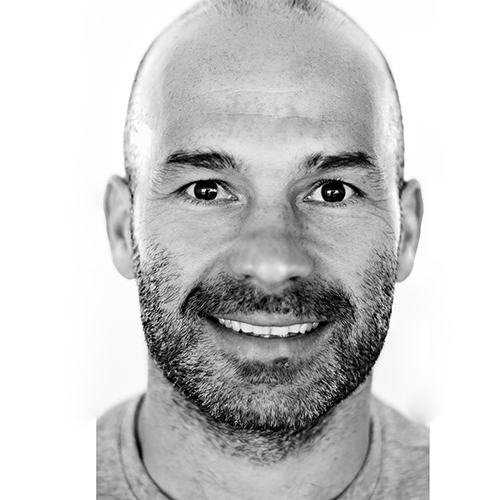
Jacky Goetz
INSERM UMR_S 1109
My group developed intravital correlative microscopy for tracking metastasis in zebrafish and mouse models of (Karreman et al. JCS, 2016; Karreman et al., TCB, 2016; Follain et al. JCS 2016). My group is also focused on dissecting the biomechanics of the metastasis cascade. We recently identified the contribution of hemodynamic forces to tumor cell arrest and extravasation preceding metastasis formation (Follain et al. Developmental Cell, 2018; Osmani et al. Cell Reports, 2019, Follain-Osmani et al. Sci Rep, 2021). These studies demonstrate that fluid & cell mechanics are key regulators of tumor metastasis (reviewed in Goetz, Science, 2018; Follain et al., Nature Reviews Cancer, 2020; Gensbittel et al. Dev Cell 2021).
My group is also interested in elucidating the mechanisms driving the establishment of pre-metastatic niches in vivo. We have recently demonstrated that Ral1 controls biogenesis and secretion of tumor extracellular vesicles (Hyenne et al. JCB 2015) and demonstrated that the zebrafish embryo can be used for tracking, at high spatio-temporal resolution, the fate and function of extracellular vesicles in vivo (Hyenne et al. Dev Cell, 2019; Verweij et al. Dev Cell, 2019; Verweij et al. TCB, 2019; Verweij et al. Nat Meth, 2021). We recently unraveled an important role for RalGTPases and the adhesive potential of Extracellular Vesicles in priming metastatic niches during breast cancer progression (Ghoroghi et al. eLife, 2021). My team recently obtained the “Ligue contre le Cancer” label for 5 years.
https://www.goetzlab.fr/
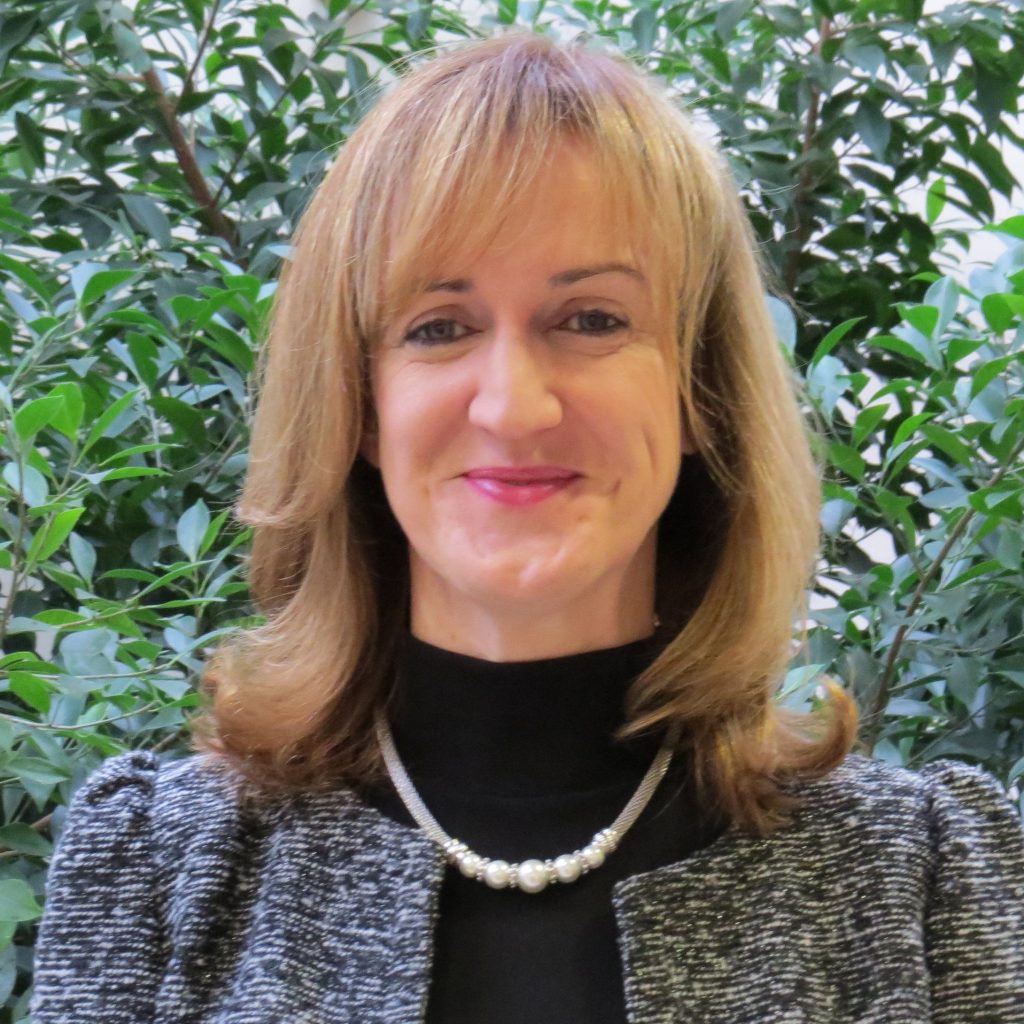
Lorraine O’Driscoll
Trinity College Dublin, Ireland
Lorraine O’Driscoll is Chair of Pharmacology and Biomedicine, School of Pharmacy and Pharmaceutical Sciences, TCD & Research Director of the Organisation of European Cancer Institutes (OECI)-designated Trinity St. James’s Cancer Institute. Lorraine holds a BSc(Hons Pharmacol), MSc(Clinical Pharmacol), MA(Ed), PhD(Biotech), FTCD, FRSB, MRIA. Following her PhD, Lorraine undertook biotechnology/biomedical research for US and EU industry (including Berlex/Bayer; Archport Ltd-Axonobel; MediSyn Ltd; MedaNova Ltd.) before returning to academic research and teaching. At post-doctoral level she gained experience at the Dana-Farber Cancer Institute, Harvard School of Medicine and University of Miami.
EV research by Lorraine’s research group is rated to cancer, regenerative medicine, and EVs in milk and infant milk formula. Lorraine was Founding Director of the H2020-funded cooperation in science and technology Consortium entitled Microvesicles and Exosomes in Health and Disease, which brought together 360 researchers from industry, academic and clinics in 31 countries. She is currently Director of a €3.9Mi H2020-MSCA-ITN TRAIN-EV, training 15xPhD students and including 5 academic and 7 industry partners and is also Co-PI on a €6Mi H2020-NMBP-TR-IND-2018-2020 EVPRO (Extracellular Vesicles Promoted Regenerative Osseointegration), led by the Fraunhofer. Lorraine is one of 12 recipients, across all disciplines, of a €1M Irish Research Council Advanced Laureate Award; the only female recipient in STEM. Lorraine led the recently announced proposal for a €4Mi North-South emerging hub of excellence, the All-Ireland Cancer Liquid Biopsies Consortium (CLuB), to co-analyse EVs, circulating tumour cells, and ctDNA.
Lorraine has served two terms on the Board of Directors of ISEV and is a Chair of ISEV’s Annual Conferences in 2021 and in 2022. She has published in many journals including the prestigious New Engl. J. Medicine, Cancer Research, Molecular Cancer, JEV, Nature Methods andhas supervised 29 PhD students to completion. Her research has translated to 5 cancer clinical trials on which she is the Scientific Principal Investigator.
https://www.tcd.ie/
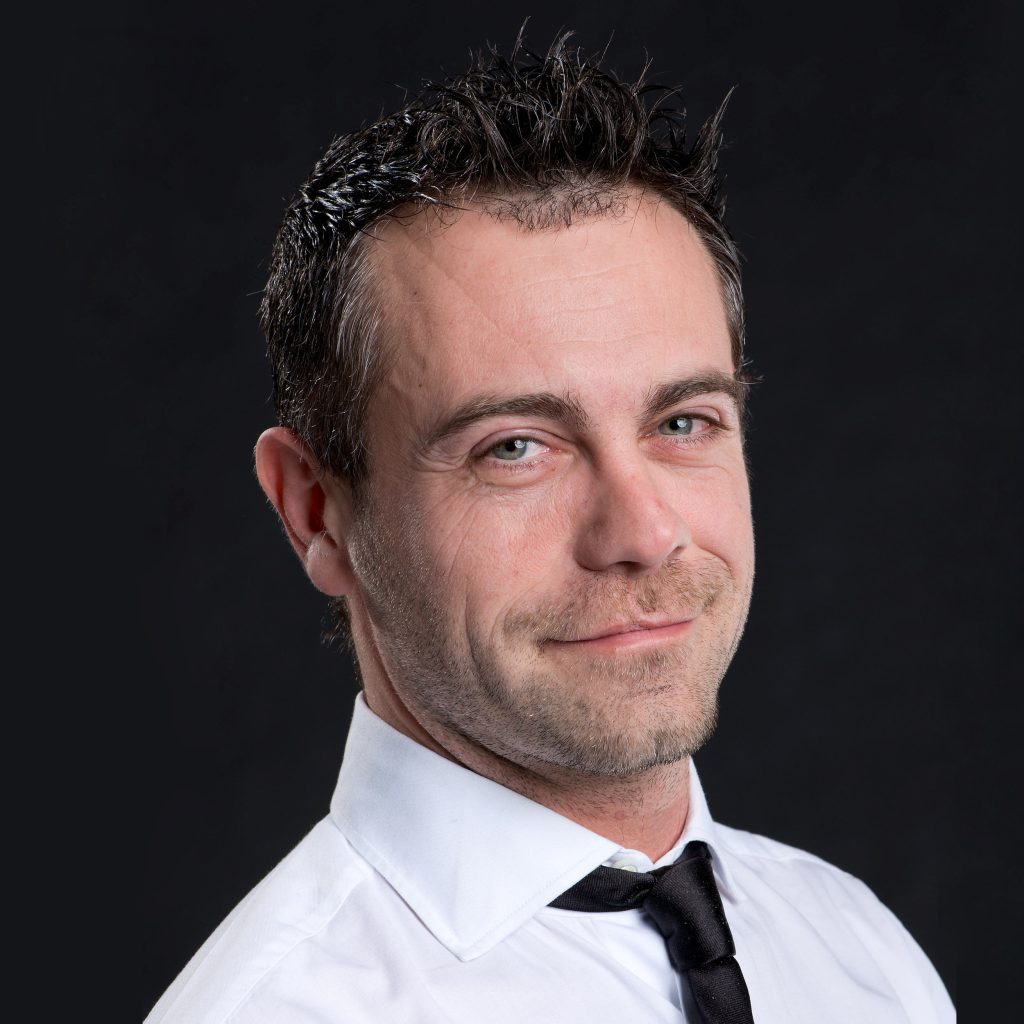
Michele DePalma
Swiss Cancer Center, Switzerland
Michele (Miki) De Palma is tenured associate professor of cancer biology at the Swiss Federal Institute of Technology of Lausanne (EPFL), Switzerland.
Miki graduated in Biology (1999) at the University of Torino, Italy, with a master thesis on the anti-proliferative functions of type I interferons. In 2004 he obtained a PhD degree in cell biotechnologies from the University of Torino Medical School, where he studied the contribution of bone marrow-derived cells to tumor angiogenesis. He performed post-doctoral training at the Telethon Institute for Gene Therapy (TIGET) in Milan under the direction of gene therapy pioneer, Dr. Luigi Naldini, to develop gene transfer strategies for reprogramming monocytes into anti-tumoral immune cells. This work has led to first-in-kind clinical trials of engineered monocytes in patients with brain cancer.
Miki joined the School of Life Sciences of EPFL in 2012, where he teaches cancer biology. Current research in the De Palma’s lab focuses on mechanisms of tumor resistance to immunotherapies mediated by myeloid cells and the angiogenic vasculature, as well as on the development of engineered dendritic cell vaccines.
Miki serves on the editorial advisory boards of Science Translational Medicine (AAAS), Cell Reports (Cell press), Cancer Immunology Research (AACR), and BBA – Reviews on Cancer. He received two European Research Council (ERC) programme grants (2009 and 2016) and was awarded the Robert Wenner Prize for cancer research in 2017.
http://depalma-lab.epfl.ch
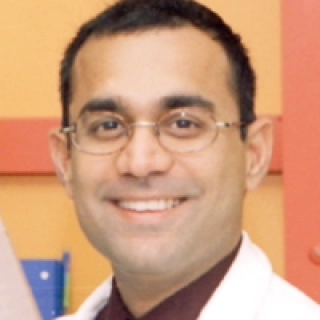
Raghu Kalluri
Professor and Chairman, Department of Cancer Biology
University of Texas MD Anderson Cancer Center
Raghu received his Ph.D. in Biochemistry and Molecular Biology from the University of Kansas Medical Center and his M.D. degree from Brown University Medical School. Kalluri was a Post-doctoral fellow and a research associate at the University of Pennsylvania Medical School and studied immunology and mechanisms associated with tissue injury and repair employing organ fibrosis as model system. In 1997, he moved to Harvard Medical School as an Assistant Professor of Medicine and as a faculty member in the Department of Medicine at the Beth Israel Deaconess Medical Center. In 2006, Dr. Kalluri was appointed the Chief of the Division of Matrix Biology and was promoted to Professor of Medicine at Harvard Medical School. He held faculty appointments in the Department of Biological Chemistry and Molecular Pharmacology, Harvard MIT Division of Health Sciences and Technology, Harvard Stem Cell Institute in the division of ephrology of the Children’s Hospital Boston. Raghu was recruited to the MD Anderson Cancer Center in 2012 as a Professor and Chairman of the Department of Cancer Biology and the Director of the Metastasis Research Center. His laboratory is broadly interested in investigating the functional contribution of cell and tissue microenvironment, and Exosomes in cancer progression and metastasis.
https://www.mdanderson.org/research/departments-labs-institutes/labs/kalluri-laboratory/research.html
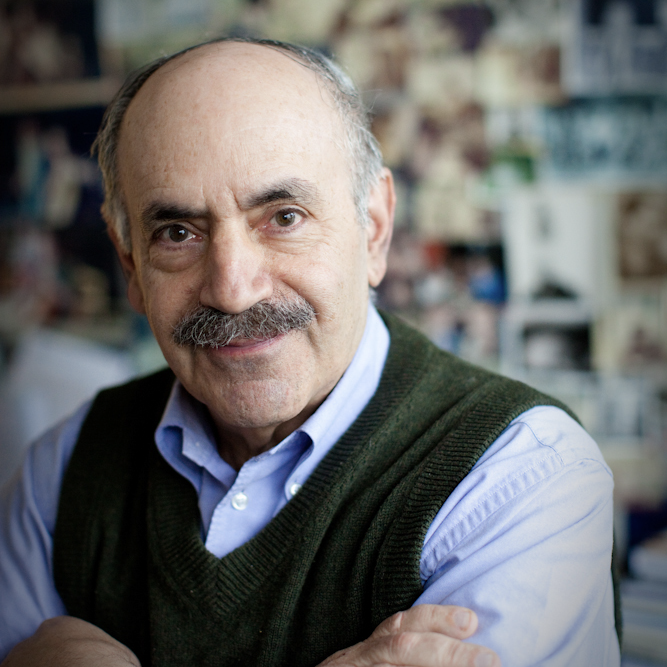
Robert Weinberg
MIT, Boston, USA
Founding Member, Whitehead Institute for Biomedical Research
Dr. Weinberg received both his undergraduate- and graduate-level education in the Department of Biology of the Massachusetts Institute of Technology (MIT) in the years 1960 to 1969. After post-doctoral stays at The Weizmann Institute in Israel and the Salk Institute in California, he was asked to return to MIT where he assumed a faculty-level position in 1974. He has continued as a member of the MIT Department of Biology since that time with the additional association with the affiliated Whitehead Institute for Biomedical Research since 1982.
His research has been focused over the past four decades on the molecular and biochemical determinants of neoplastic cell transformation and led to the discovery of the first functionally validated human oncogene (Ras) in 1979-81 and the isolation of the first validated tumor suppressor gene, RB, in 1986. This work led in subsequent years to the first experimental transformation of normal human cells into neoplastic cells in 1999. Since 2004, his group has been increasingly focused on the mechanisms by which the cell-biological program termed the epithelial-mesenchymal transition (EMT) confers on carcinoma cells many of the traits that are required for invasion and metastasis formation. Among other discoveries, they have demonstrated in 2008 that the EMT program can create de novo carcinoma cells with the properties of cancer stem cells.
WI.MIT.ED

Sónia Melo
i3S, Porto, Portugal
My expertise involves exosomes biology, pancreatic cancer and in vivo models of disease with 41 peer-reviewed publications and 7322 citations (h-index 27). I have trained as a postdoc at Harvard Medical School, Boston, USA and MD Anderson Cancer Center, Houston, USA, as an EMBO and Human Frontiers Fellow. I head an independent research line at i3S since 2015. I was distinguished with the UNESCO-L´Oreal Prize for Women in Science (2015). I supervise two junior researchers and four PhD students. My research has contributed for a better understanding of the role of cancer exosomes in disease progression, and has made seminal contributions for the application of exosomes to patient care. I have described exosomes as biologically active (Cancer Cell 2014) and we were pioneer in the identification of dsDNA in exosomes (JBC 2014). We demonstrated the potential of exosomes as early detection biomarkers in pancreatic cancer (Nature 2015) and as vehicles to target pancreatic cancer (Nature 2017). Our research culminated in an ongoing clinical trial to determine the therapeutic benefit of RNAi-delivery by exosomes to pancreatic cancer patients (ClinicalTrials.gov NCT03608631) and 3 international patents. Recently my group has described for the first time an intra tumor communication network mediated by extracellular vesicles (EVNet) in pancreatic cancer, which is coordinated by Agrin released in EVs by cancer stem cells (Gut 2022). We have demonstrated that inhibition of communication by cancer stem cells or inhibition of Agrin is sufficient to impair tumor growth.

Sriram Sathyanarayanan
Codiak BioSciences, Inc.
Sriram Sathy is the Chief Scientific Officer (CSO) at Codiak Biosciences and a distinguished scientist with more than 23 years of research experience in cancer biology, immunology and immuno-oncology. He is an experienced drug developer and is responsible for bringing multiple drug candidates from concept to clinic across multiple therapeutic modalities including monoclonal antibodies, complex biologics, small molecules and antisence oligoneucliotides.
His research team designed and led the preclinical evaluation of all of Codiak’s development programs in oncology/immuno-oncology, including exoIL-12™ and exoSTING™, which are currently in Phase 1/2 clinical trials, and exoASO™-STAT6, which has cleared the IND and will enter clinical development shortly. exoIL-12™ is an engineered exosome designed to express the potent Th1 cytokine in the tumor and elicit maximal anti-tumor activity with minimal systemic leakage and is undergoing clinical testing in cutaneous T-cell lymphoma (CTCL) patients. Similarly, exoSTING™ is designed to selectively activate antigen presenting cells, improve potency and tumor retention, and is undergoing clinical evaluation in multiple solid tumors. Recently his team has designed an engineered exosome therapeutic, exoASO™-STAT6, capable of selectively silencing the transcription factor STAT6 in the tumor associated macrophages for the treatment of Hepato-cellular Carcinoma (HCC).
Prior to joining Codiak he worked as a Sr Director at Jounce Therapeutics, an immuno-oncology biotech company where he led the Translational Science group to build the translational platform and biomarker strategies to enable clinical development of novel cancer immunotherapy agents for leading clinical programs, including Vopratelimab (JTX-2011) from inception to Phase 2 clinical development. He began his career in drug discovery at Merck Research Laboratories where he was responsible for building translational oncology strategy for multiple biologics and small molecules programs including Dalotuzumab and Ridaforolimus. Dr. Sathyanarayanan completed his post-doctoral research at the University of Pennsylvania School of Medicine. He received his Ph.D. in microbiology and cell biology from the Indian Institute of Science and masters and undergraduate degrees in biochemistry from PSG College of Arts & Science, Coimbatore, India in Biochemistry. He has published more than 32 original research articles in peer reviewed high-profile journals and multiple patent applications.
Earlier in his career, Sriram was working in the field of Circadian Rhythms as a Post-Doctoral Fellow at the University of Pennsylvania School of Medicine & Howard Hughes Medical Institute in Philadelphia and Massachusetts General Hospital and Harvard Medical School. He has his PhD from the Indian Institute of Science, Bangalore, India in Microbiology and Cell Biology with his thesis research in the laboratory of Prof. K.P. Gopinathan winning the M Sreenivasaya Best Thesis award and gold medal.
Sriram lives in Lexington, MA with his family and enjoys long distance biking and raising awareness about Cancer Research.
www.CodiakBio.com
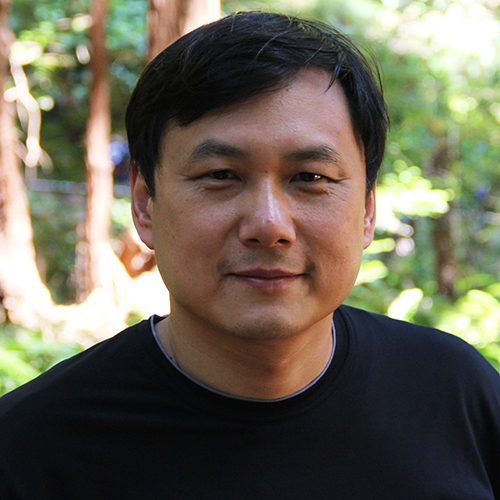
Wei Guo
University of Pennsylvania
Dr. Wei Guo is a Professor at the University of Pennsylvania Department of Biology. His laboratory has long-standing interest in the molecular basis and regulatory mechanisms of vesicular trafficking and tumor cell invasion. He has applied the basic cell biological principles to the understanding of cancer, especially melanoma. Taking a multidisciplinary approach that combines biochemistry, biophysics, genetics, and advanced microscopic imaging, his laboratory has made fundamental discoveries that contributed to the molecular understanding of cancer metastasis, melanoma drug resistance, and more recently tumor immune evasion.
http://www.bio.upenn.edu/people/wei-guo

